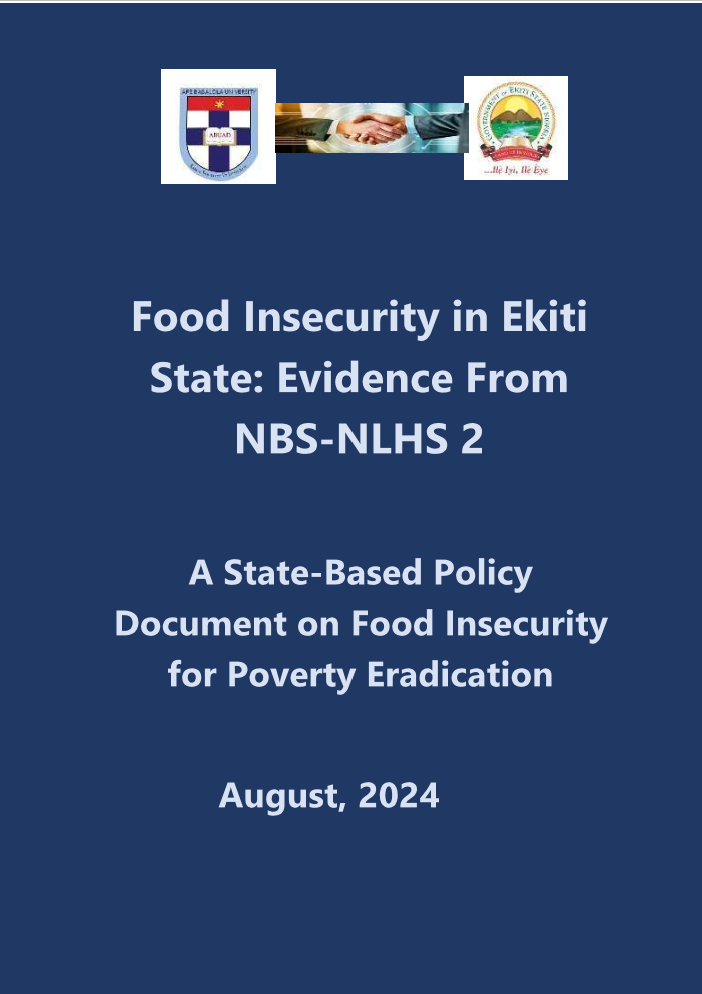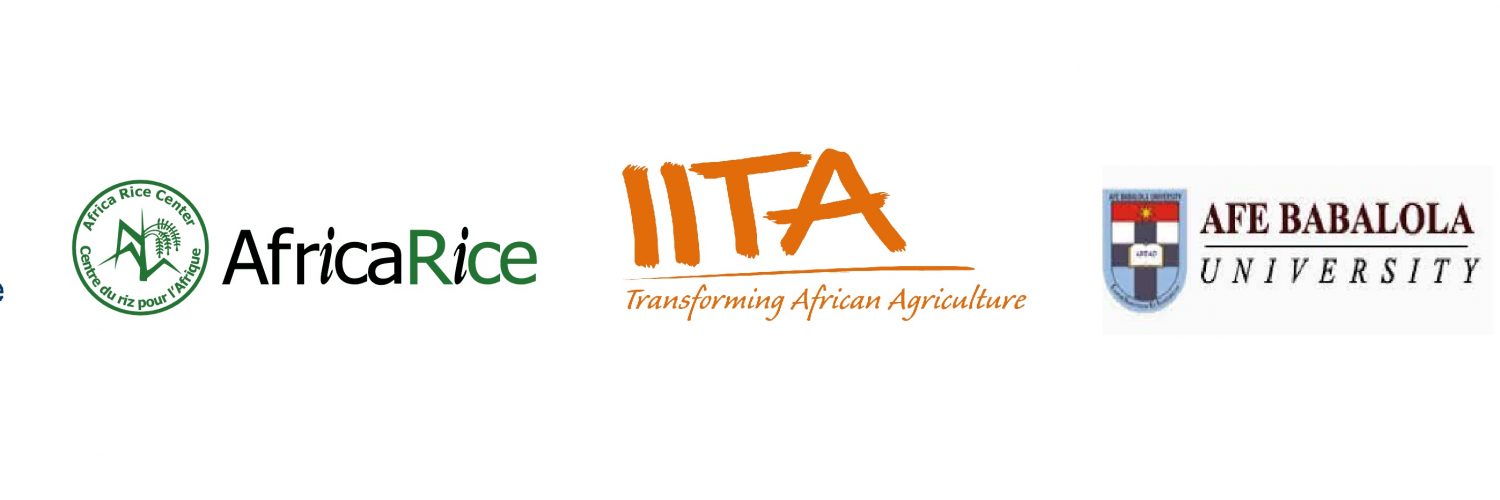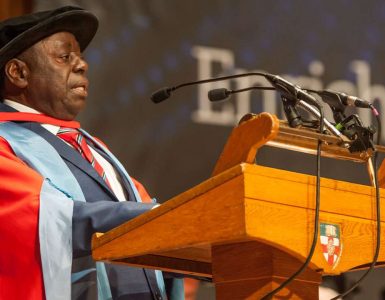
In 2024, Afe Babalola University (ABUAD) remains committed to promoting agriculture as a sustainable business opportunity for young individuals. The university continues its collaboration with the International Fund for Agricultural Development (IFAD), the International Institute of Tropical Agriculture (IITA), and AfricaRice as part of a three-year initiative aimed at empowering around 1,500 youths through the “Youth Employment in Agri-business and Sustainable Agriculture” (YEASA) project. This significant initiative, which commenced in 2020, has successfully progressed and is achieving notable outcomes in 2024.
By September 2024, the project has successfully trained a total of 1,457 youths in various agricultural sectors and commodities, reflecting diverse areas within the agricultural landscape. This group consists of an almost equal representation of genders, with 49.1% identified as female and 50.9% as male. Among these trained participants, 1,425 youths—accounting for 97.8% of those trained—have received Grant Awards. These grants include a combination of essential equipment and cash support of $500 each, which will enable them to initiate and develop their own agribusiness ventures in their respective rural communities.
The YEASA project not only equips participants with practical skills in agriculture but also addresses the financial barriers that often hinder young entrepreneurs from entering the market. By providing targeted support and resources, the program aims to foster a new generation of agribusiness leaders who can contribute to the local economy, enhance food security, and promote sustainable agricultural practices. For more detailed information about the results and impact of the project, please refer to the 2024 YEASA Report. Click 2024 YEASA Report to read more
2024-ABUAD-YEASA-PROJECT-REPORT-2019-to-2024-compressed2024-UNESCO-MONITORING-INSRUMENTS-for-ABUAD-UNESCO-CHAIR-FOR-ENTREPRENEURSHIP-EDUCATION
A pioneering UNESCO/ABUAD partnership launched in April 2019 and renewed in 2024 has focused on training young individuals in various agricultural techniques with the aim of transforming them into successful entrepreneurs. Professor Abiodun Ojo, who serves as the Provost of the College of Postgraduate Studies at Afe Babalola University, Ado-Ekiti (ABUAD), and also holds the position of acting Provost for the College of Agriculture, emphasized the program’s flexibility by allowing trainees to select specific areas of specialization within agriculture that align with their interests and aspirations.
The initiative targets youths from Ekiti and Oyo States, marking the beginning of a comprehensive training scheme designed to introduce participants to modern, mechanized farming practices and effective marketing strategies for agricultural products. Professor Ojo elaborated on the diverse training pathways available: “Some youth will have the opportunity to learn how to produce fish fingerlings, which they can raise and eventually sell. Others may specialize in rice cultivation, including techniques for de-stoning and processing rice. There will also be options for working with cassava, maize, or mango crops, where trainees will discover how to create various products such as chips and different by-products from Moringa.”
One of the most remarkable features of this training program is the provision of essential support for participants. The program ensures that all trainees are provided with meals and accommodations throughout the training period. Participants also receives either seedlings or start-up funds, referred to as seed money, to help them initiate their own agricultural ventures once the training is completed. Furthermore, the initiative includes a strong component of mentorship; experienced professionals will be on hand to guide and monitor the trainees, ensuring they have the resources and knowledge needed to succeed and, ultimately, to empower them to train others in their communities.
At a recent workshop held to announce this collaboration, Dr. Malu Muia Ndavi, a technical specialist from the International Fund for Agricultural Development (IFAD), spoke passionately about their motivation for partnering with the university. He expressed deep concern over the high levels of unemployment across Nigeria and Africa, which has left many youth struggling to find viable job opportunities. “We must encourage universities across Africa to revisit and revamp their curricula,” he stated, “so that they can effectively address the challenges of the 21st century and inspire creativity and ingenuity in their graduates.” Dr. Ndavi highlighted the significance of the partnership with ABUAD, stating, “We are committed to supporting the goal of training 1,500 youths in modern farming techniques over the next three months and ensuring that all our commitments are fulfilled. This marks the beginning of a long-term collaboration that we anticipate will yield significant benefits.”
Aare Afe Babalola (SAN), the visionary founder of ABUAD, voiced his concerns regarding the youth’s dependency on the diminishing availability of white-collar jobs. He noted the historical context of civil service employment in Nigeria, asserting that it has led to a misguided belief that such roles are the only valid career paths. “When civil service was introduced, those who held those positions lived with the perception of being in a prestigious job,” he explained. “Unfortunately, they were trained in a way that undervalued farming as a respectable profession.” Babalola is determined to challenge this misconception and emphasized the critical role that both IFAD and ABUAD play in driving agricultural innovations. “We must engage in research and develop new methods to modernize agriculture,” he urged.
Babalola further stressed the potential of agriculture not only to create substantial job opportunities and wealth but also to actively contribute to ending hunger and significantly reducing poverty. His vision aligns with the United Nations Sustainable Development Goals (SDGs), particularly Goals 1 and 2, which advocate for “No Poverty” and “Zero Hunger.”
In line with these initiatives, during the 2024 edition of the Afe Babalola Agricultural Expo (ABAEX), Babalola took significant action to support the agricultural sector by providing youth and local farmers with a grant totaling eleven million two hundred thousand Naira (N11.2 million). The sum of thirty-four million Naira (N34 million) was expended in the 2022 edition. A sum of one hundred and forty-two million, two hundred thousand Naira (N142.2 million) has been expended on this project from inception in 2014 till 2024. This financial support was aimed at helping them sustain their agribusiness efforts and invest in their startups, thus empowering a new generation of agricultural entrepreneurs. Continue to read ABAEX 2022 from here
2024 ABUAD LAW AND COMMUNITY LEGAL CLINIC REPORT
2024-ABUAD-LAW-AND-COMMUNITY-LEGAL-CLINIC-REPORT
#yeasa 2019 #tribune newspaper 2019 #guardian newspaper 2019
2024-ABUAD-AND-EKITI-STATE-GOVERNMENT-POLICY-DOCUMENT-ON-POVERT-ERADICATIONJune-September-2024-Report_UNESCO-Chair-on-Peace-and-Citizenship-ID2020NG1392

















Add comment